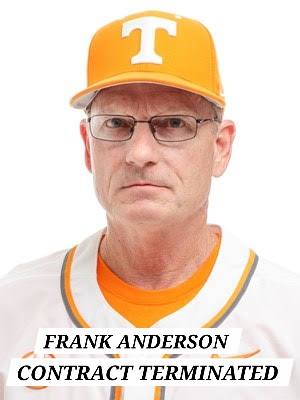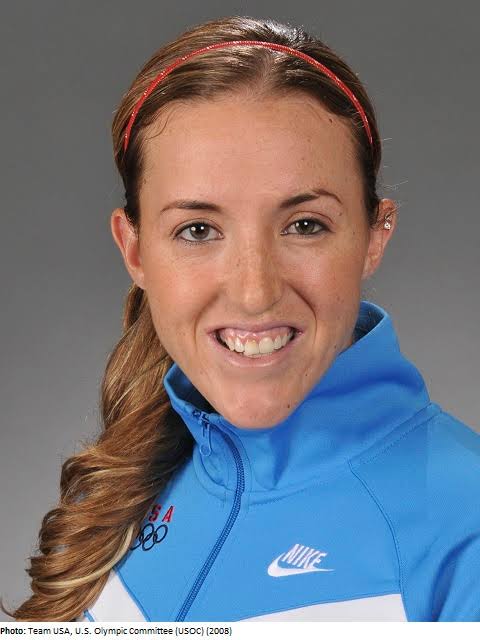Rocky Top Tremors: Frank Anderson’s Contract Abruptly Terminated Amid Internal Crisis at Tennessee Baseball
KNOXVILLE, TN – May 19, 2025
In a stunning and deeply unsettling turn of events for one of college baseball’s most successful programs in recent years, the University of Tennessee has officially announced the termination of veteran pitching coach Frank Anderson’s contract, effective immediately. The shocking decision, delivered via a press conference this morning by Athletic Director Danny White, has sent ripples through the college baseball world and raised pressing questions about internal instability within a team that, just months ago, was riding high after a historic national championship.
This development comes on the heels of weeks of mounting speculation surrounding tensions within the Vols’ baseball program. While no formal cause was initially provided for Anderson’s abrupt departure, multiple sources inside the program have confirmed the existence of a growing rift between Anderson and key members of the coaching and athletic administration—disagreements that reportedly came to a head in recent days and forced the university to take swift, decisive action.
—
A Tennessee Pillar Falls
Frank Anderson, 65, had been a cornerstone of the Tennessee baseball renaissance under Head Coach Tony Vitello since his hiring in 2017. Known for his meticulous approach to pitching development and his ability to extract elite performance from arms year after year, Anderson helped build Tennessee’s pitching corps into one of the most feared in the nation.
Under his guidance, the Vols led the NCAA in strikeouts multiple times, produced an assembly line of MLB draft picks, and were widely lauded for their depth and velocity on the mound. His tenure peaked in 2024 when Tennessee captured its first-ever national championship, with the pitching staff widely acknowledged as the spine of the championship run.
But behind the scenes, the picture appears to have grown darker.
—
Unraveling from Within
According to multiple insiders who spoke on the condition of anonymity, tensions began to simmer late in the 2024 season, despite the team’s success on the field. While Anderson remained publicly composed and focused, internal disagreements regarding player usage, recruitment strategy, and staff autonomy began to surface.
Sources describe a deteriorating working relationship between Anderson and Associate Head Coach Josh Elander, who has increasingly taken on a central leadership role within the staff. Disputes reportedly centered around bullpen management, particularly during the SEC Tournament, and whether certain pitchers were being overused or mismanaged.
Following the championship win, Vitello, now one of the most prominent figures in college baseball, sought to make structural changes to further modernize the program. This included shifting more analytical control to new Director of Baseball Operations Josh Reynolds and Director of Analytics Zach Stovall. Anderson, described by some as “old school,” reportedly resisted the encroaching data-first approach to pitching management.
As the 2025 season progressed, insiders say, the conflict deepened. One source close to the team described “tense meetings, sudden staff absences, and cold silences in the dugout.” Anderson, who had already postponed retirement twice to remain with the Vols, was rumored to have offered his resignation as early as March, but Vitello and White had tried to hold things together for the sake of the team’s competitive momentum.
By early May, however, the situation had reportedly become untenable.
—
The Final Straw
While university officials have remained tight-lipped about the specific incident that led to Anderson’s termination, multiple sources allege that a confrontation during a closed-door pitching staff meeting last Thursday escalated into a verbal altercation between Anderson and Reynolds. This confrontation was witnessed by several players and is said to have left many “visibly shaken,” according to a team insider.
An emergency meeting was convened by Danny White that same evening. By Saturday, Anderson had cleared his office at Lindsey Nelson Stadium. On Monday morning, the university released a terse statement confirming the end of his contract “due to irreconcilable professional differences.”
Vitello, who did not attend the press conference but issued a written statement, called the decision “deeply painful,” adding, “Frank has been a mentor, a teacher, and a champion for this program. But we have reached a point where differences in vision and approach have made continued collaboration impossible.”
—
Player Reactions and Fallout
Players, many of whom were recruited directly by Anderson and developed under his tutelage, have responded with a mix of disbelief and heartbreak. Senior pitcher Drew Beam, a projected first-round draft pick and one of Anderson’s most notable protégés, posted a simple message on X: “Heartbroken. Coach A believed in me when no one else did.”
A team meeting held Sunday evening was described as “somber and quiet,” with players told not to speak to the media until after the weekend series against Vanderbilt.
The timing of the decision—mid-May, just before the SEC Tournament—has left many within and outside the program questioning whether it will affect Tennessee’s postseason prospects. Already favored as a top national seed, the Vols will now enter the tournament without the man who orchestrated their pitching strategy for nearly a decade.
—
Questions Linger About Stability
More troubling for some fans and alumni is what this episode reveals about the internal health of a program that, until recently, appeared to be the model of cohesion and success. The rapid staff expansion in 2024, which included new roles in analytics, sports nutrition, and player development, has led to what some insiders call “too many cooks in the kitchen.”
“There was a time when it was just Tony, Frank, and Josh making all the big decisions,” said one former staff member. “Now you have a dozen people in a meeting, and sometimes it felt like everyone was pulling in different directions.”
Vitello, who has built Tennessee into a national powerhouse, now faces the difficult task of steadying a program that has grown so fast it may have lost some of its foundational harmony. His response to the crisis—and how he navigates the postseason without his most experienced lieutenant—will likely define his next chapter at Tennessee.
—
What’s Next for Anderson?
As for Frank Anderson, there has been no official statement from him since his termination. Close friends say he is “devastated” by the way things ended but remains proud of what he accomplished in Knoxville.
“He didn’t deserve to go out like this,” said a former player. “He built this pitching staff from the ground up. He bled orange and white every day.”
Some speculate that Anderson may finally retire, while others believe he could return to coaching in a more advisory capacity elsewhere, perhaps back in the Big 12 or even at the professional level.
—
The Road Ahead
For now, the University of Tennessee will appoint Josh Reynolds as interim pitching coordinator for the SEC and NCAA Tournaments, while a nationwide search for Anderson’s permanent replacement is expected to begin after the season concludes.
While the Vols still possess one of the most talented rosters in the country, the shadows cast by Anderson’s departure—and the deeper issues it reveals—may haunt them for the rest of the season.
The orange flame still burns, but for the first time in years, it flickers with uncertainty.









